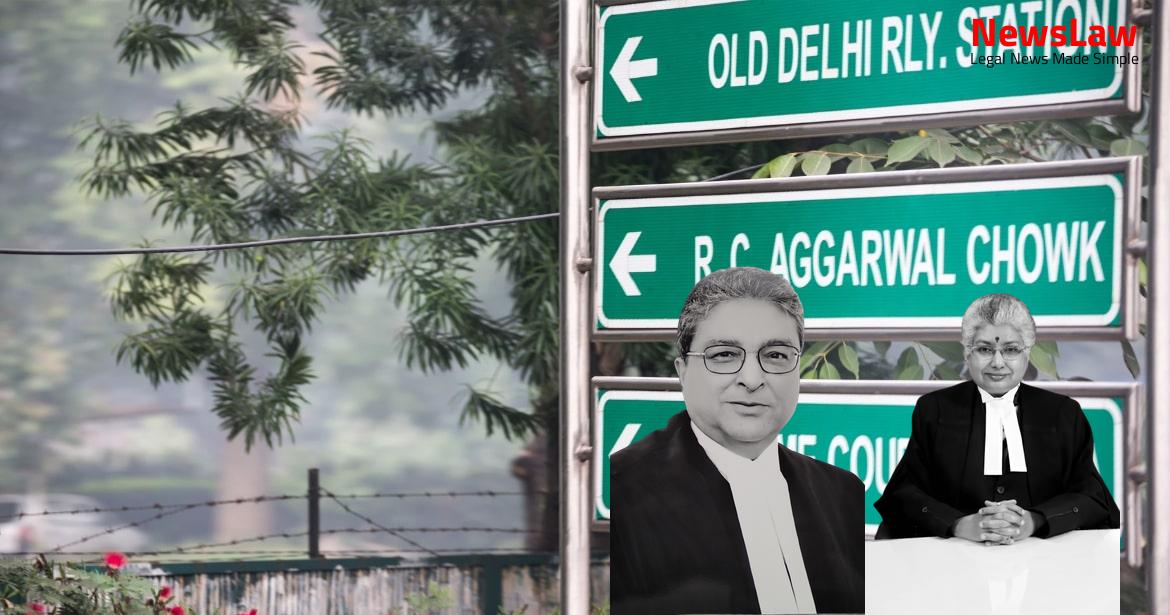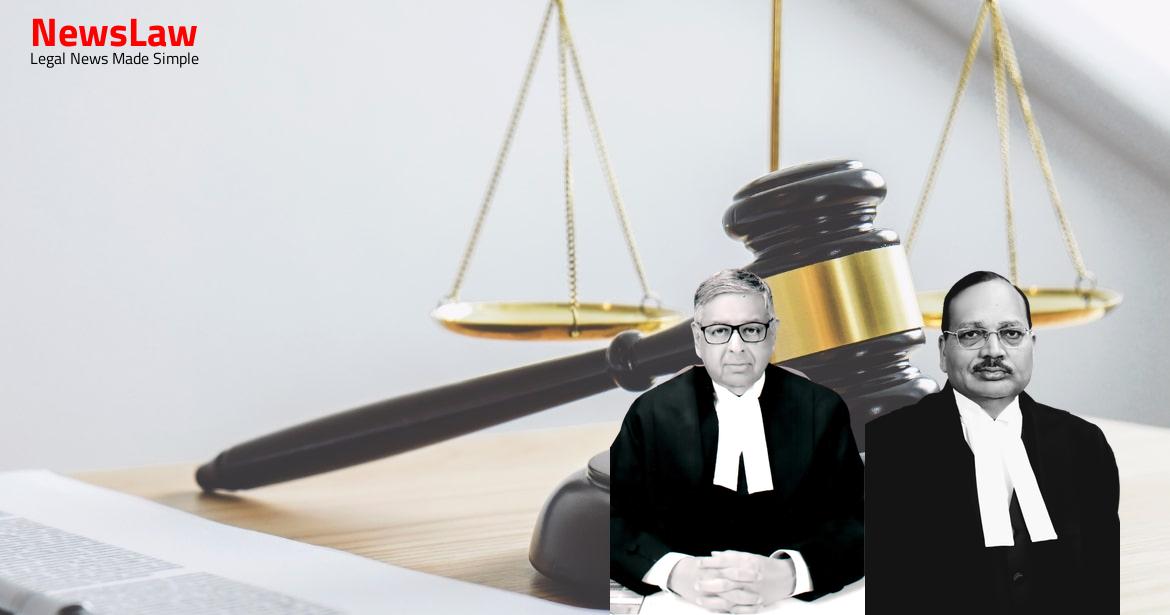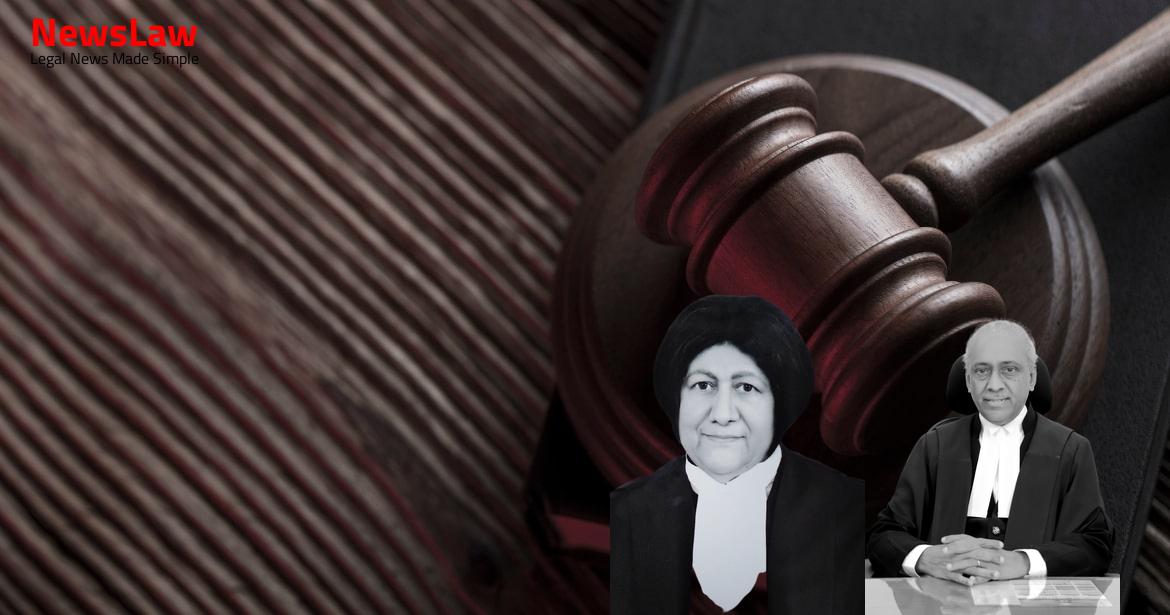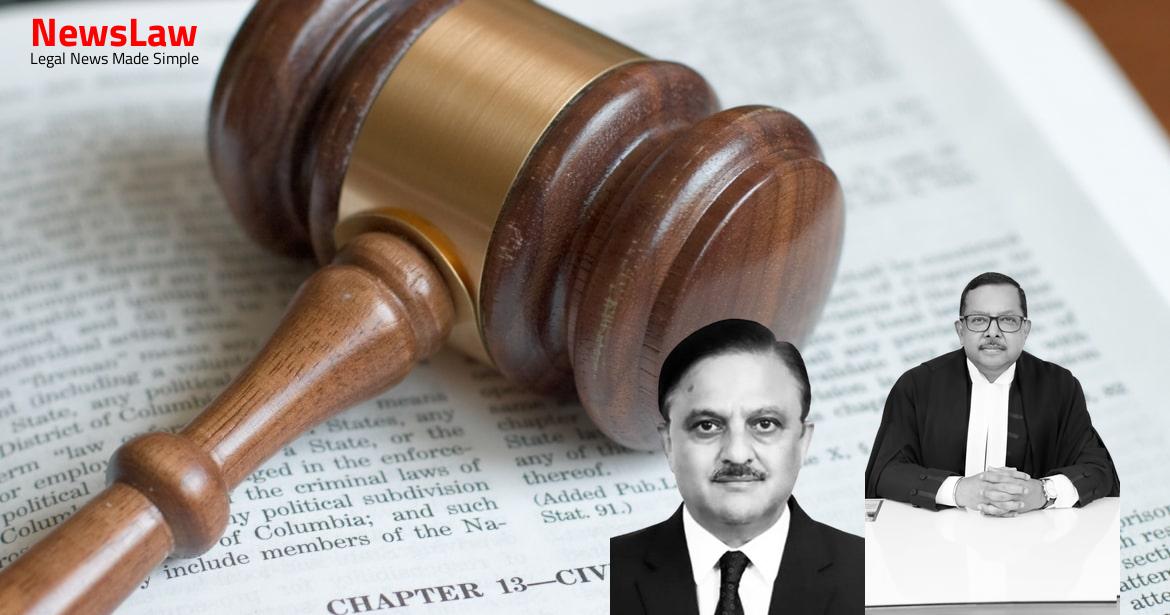Explore the critical examination of bail granting in a serious criminal case, focusing on the court’s legal analysis. The case involves a thorough review of the bail application process, emphasizing the significance of reasons provided by the court in such decisions. The post sheds light on the need for transparency and accountability in judicial proceedings, particularly in cases involving grave offenses. Stay tuned for insights into the intricate workings of the legal system.
Facts
- The appellant filed an application under section 319 of the CrPC to summon the accused-respondents who were not charge sheeted by the Police.
- The accused-respondents were subsequently arrested following the summons by the Additional Sessions Judge.
- Accused-respondents summoned under section 319 of the CrPC failed to appear before the trial court.
- Accused-respondent Meherban preferred a bail application before the Court of the Additional Sessions Judge in Meerut.
- The appellant is the mother of the deceased Yameen.
- The injury report of Jamshed described three injuries: an incised wound on the scalp, abrasion and contusion on the back and arm.
- Police filed a charge-sheet only against three accused: Sullad, Bhoora alias Shadab, and Yamin.
- Accused Sullad, Bhoora alias Shadab, and Yamin were presented before the Court by the Police on the trial’s commencement date.
- The appeals were filed by the informant-appellant challenging the bail granted to the accused by the High Court in Criminal Miscellaneous Bail Application cases.
- Yameen died due to the assault, and two others, Mobin and Jamshed, sustained serious injuries.
- The appellant lodged the First Information Report naming eleven accused, of which only three were charge-sheeted initially.
- The Additional District and Sessions Judge issued Non-Bailable Warrants against the respondents.
- The bail application of accused-respondent Meherban was allowed by the High Court.
- Subsequently, bail applications of accused-respondents Jumma, Hakmeen, Yaseen, Arshad, and Firoz were also allowed.
- The appellant has filed appeals before the Court due to being aggrieved.
- The accused-respondents failed to appear in court despite directions to surrender.
- Proceedings for attachment of property of accused-respondents were initiated under section 83 of the CrPC.
- The accused-respondents were arrested by the Police on 5 February, 2020, and remained in judicial custody.
- The accused-respondents absconded on the next trial date where Non-Bailable Warrants were issued against them.
- The bail applications of Jumma, Hakmeen, Yaseen, Arshad, and Firoz were rejected by the High Court.
Also Read: Judicial Review in Disciplinary Proceedings
Arguments
- The accused had failed to appear before the Trial Court despite multiple directions from various courts.
- Mother of the deceased requested for setting aside the impugned orders of the High Court and allowing the appeals.
- The defense counsel for the accused-respondents argued in favor of the impugned orders and claimed they had no infirmity.
- The defense counsel stated that the High Court should not have granted bail to the accused considering the seriousness of the alleged offenses.
- The defense counsel for the respondents mentioned a scuffle involving the sons, husband of the appellant, and the accused-respondents on the day of the incident.
- Claimed that the informant-appellant provided a false version of events to falsely implicate the accused.
- Criticism was made towards the High Court for giving bail in a brief order without proper reasoning.
- The defense counsel for the appellant relied on specific judgments of the Court to support their arguments.
- Argued that the High Court did not provide reasons for granting bail, suggesting a lack of judicious exercise of jurisdiction.
- Expressed concern over the possibility of accused tampering with evidence or influencing witnesses if granted bail.
- Highlighted that the accused had a history of absconding but were now granted bail, contrary to established legal principles and Court decisions.
- Raised the issue of the accused potentially absconding again if released on bail, which could prejudice the investigation and trial.
- The appellant’s counsel argued that the accusations against the respondent-accused are false.
- The High Court’s reasoning for granting bail to the accused respondents was based on the nature of the accusation, severity of punishment upon conviction, supporting evidence, apprehension of witness tampering, and prima facie satisfaction of the Court.
- The High Court orders granting bail were criticized for lacking reasoning and being cryptic, with bail granted in a casual manner.
- The High Court set certain conditions for bail, including filing an undertaking not to seek adjournments during witness testimonies and appearing before the trial court on each fixed date.
- It was highlighted that the accused-respondents have no criminal antecedents, and therefore, the High Court’s decision to grant bail was lawful.
- It was argued that detailed discussions on the case merits during a bail application could prejudice a fair trial, and the fact that the accused were not charge-sheeted indicates that a prima facie case was not established against them.
Also Read: Legal Analysis in Company Law Case
Analysis
- The applicants are entitled to be released on bail based on various factors.
- Specific conditions are imposed on the applicants for the bail to ensure the interest of justice.
- The applicants must file an undertaking not to seek adjournment when witnesses are present.
- If the applicants misuse the bail and fail to appear in court, legal proceedings will be initiated against them.
- The applicants must be present in court for key events like opening of the case, framing of charges, and recording of statements.
- The order granting bail must be downloaded from the official website of the High Court of Allahabad and self-attested by the counsel.
- Sureties’ identity, status, and residence proof must be verified before being accepted.
- The trial court has the authority to cancel the bail in case of any breach of the imposed conditions.
- The nature of the charge and evidence, as well as potential punishment, are key factors in granting bail.
- Court must consider the nature of accusations, evidence, severity of punishment, and impact on justice.
- Likelihood of the applicant interfering with witnesses or obstructing justice should be assessed.
- Giving reasons while deciding a matter is crucial, as seen in the context of a revision petition dismissal.
- Legislature requires ‘reasonable grounds for believing’ in granting bail, not proof of guilt.
- Defaulting on bail conditions may lead to consequences by the trial court.
- Reasons for decisions must be cogent, clear, and succinct to justify the grant of bail.
- An order granting bail should result from a judicious exercise of discretion.
- The correctness of an order granting bail is tested based on whether it was a proper and justified exercise of discretion.
- A Court cannot lose sight of the serious nature of accusations against an accused when considering a bail application.
- A prima facie conclusion in support of the charge against the accused must be supported by reasons based on vital facts of the case.
- The duty to accord reasons for a decision is essential for judicial transparency and accountability.
- Transparency in decision-making is crucial to restrain abuse of judicial powers.
- Bail cannot be granted as a matter of course without cogent reasoning.
- Courts deciding bail applications must consider various material aspects of the case, including severity of allegations, criminal antecedents, and possible tampering of evidence.
- The accused-respondents tampering with evidence and influencing witnesses is a significant concern.
- Beneficiaries of the accused should not be ruled out due to the potential tampering with evidence.
- The High Court granted bail to accused-respondents without considering the seriousness of the allegations or the risk of tampering with evidence and witnesses.
- The orders granting bail were cryptic and lacked coherent reasoning, as per the Supreme Court.
- The High Court failed to uphold the seriousness of the case and the risk of influencing the trial process.
- The accused failed to surrender, violating multiple court orders and the rule of law.
- The offences alleged against the accused are grave and heinous, involving death and serious injuries.
- The accused resisted arrest for a prolonged period and allegedly attacked with deadly weapons.
- There was a pre-existing enmity between the deceased and one of the accused, which had been settled previously.
Also Read: Secured Creditor Rights vs. Confiscation Orders Legal Battle
Decision
- Accused respondents were summoned by the Trial Court on 21 September, 2019.
- Chances of accused absconding are high given their past conduct.
- Bail bonds of accused respondents are cancelled.
- They are directed to surrender before the concerned jail authorities within two weeks.
- High Court dismissed their application and granted 30 days to surrender before the Trial Court.
- Accused-respondents filed a Special Leave Petition which was dismissed by the Supreme Court on 6 December 2019.
- Applications before the Additional District and Sessions Judge were rejected on 8 July, 2020.
Case Title: JAIBUNISHA Vs. MEHERBAN (2022 INSC 55)
Case Number: Crl.A. No.-000076-000076 / 2022



